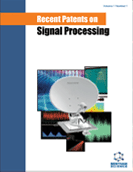Abstract
Biometric systems use automated methods for pattern recognition in determining the authenticity of a specific physiological or behavioral characteristic of an individual to determine or verify identity. In this work, 2D and 3D palmprints are integrated in order to construct an efficient multi-biometric identification system based on matching score level fusion. In this paper, we try to evaluate the usefulness of the 2D and 3D palmprints for improving the palmprint based person identification systems. For that purpose, we propose several systems of exploiting the palmprint modalities. In this study, the Gabor filter response and the wavelet transform are used for representing the palmprint traits. First, the 2D palmprint is filtered by the Gabor filter. The real and imaginary responses of the filtered image are used to create three different vectors. Second, the 2D palmprint is transformed into several sub-bands using wavelet transform. After that, some sub-bands are used to create several vectors. Subsequently, the Radial Basis Function (RBF) is used for modeling and classifying the feature vectors. The results of some classifiers are combined using matching score level fusion strategy. The proposed system was tested and evaluated, for its efficacy on the available PolyU 2D and 3D palmprint database of 300 persons. The obtained experimental results show that the system yields the best performance for identifying palmprint and it is able to provide the highest degree of security.
Keywords: Biometrics, data fusion, Gabor filter, identification, palmprint, radial basis function, wavelet transform.
 22
22

